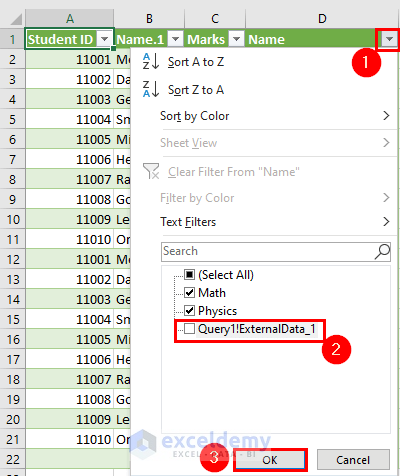3 Easy Ways to Merge Excel Sheets

Merging Excel sheets can seem like a daunting task, especially when dealing with large datasets. However, Excel offers several built-in features that simplify this process. Whether you're combining data from different departments, consolidating financial reports, or just organizing your personal records, here are three easy methods to merge Excel sheets effectively.
Method 1: Using Consolidate Feature


Excel’s Consolidate feature is a powerful tool for merging data from multiple sheets into one without creating duplicate entries. Here’s how you can use it:
- Open Your Workbook: Start by opening the Excel workbook where your sheets are located.
- Go to Data Tab: Click on the Data tab in the Ribbon.
- Select Consolidate: In the Data Tools group, select Consolidate.
- Choose Your Function: Decide if you want to use Sum, Count, or any other function to combine your data.
- Add Sheets:
- Click on Reference and select the range of cells from the first sheet you want to merge.
- Add more references by clicking Add for each additional sheet.
- Choose Options: Select Create links to source data to keep your data dynamic, or Top row and Left column if your sheets have labels.
- Click OK: Your data will now be merged into one sheet.
💡 Note: Excel will sum or perform the chosen function on similar labels across sheets, helping avoid duplicates.
Method 2: Utilizing Power Query


Power Query, introduced in Excel 2010 as a free add-in and later integrated into the Data Tab from Excel 2016 onwards, provides an advanced method for merging Excel sheets:
- Launch Power Query Editor: Navigate to Data > Get & Transform Data > Get Data > From File > From Workbook.
- Combine Files: Choose Transform Data from the Navigator window to open Power Query Editor.
- Select Sheets to Merge:
- In the Power Query Editor, go to Home > Combine Files.
- Pick the sheets you wish to combine from the list presented.
- Perform the Merge: Use Append Queries if you want to stack the data, or Merge Queries for side-by-side merging.
- Load Data: Click Close & Load to see the merged data in Excel.
💡 Note: Power Query is very versatile, allowing you to merge not just Excel sheets but also data from other sources like databases or websites.
Method 3: VLOOKUP with Tables


VLOOKUP, combined with Excel tables, can offer a flexible way to merge Excel sheets:
- Prepare Your Tables: Ensure each sheet has data organized in tables (use Insert > Table for simplicity).
- Set Up Lookup Range: Identify the unique identifier in one of the tables you want to merge with data from another table.
- Formulate VLOOKUP:
- Enter the VLOOKUP function in the destination sheet: =VLOOKUP(lookup_value, table_array, col_index_num, [range_lookup])
- Drag the formula down to apply it to all rows.
- Merge Data: The function will pull in data from the corresponding sheet based on the lookup value.
💡 Note: VLOOKUP requires exact matches by default. To match approximately, set the last argument to TRUE.
Merging Excel sheets doesn't have to be an arduous task. With these three methods, you can streamline the process, making data management and analysis much easier. Whether you choose Consolidate for a straightforward approach, Power Query for its power and flexibility, or VLOOKUP for its dynamic linking capabilities, you now have the tools to merge your sheets efficiently. Remember, the choice of method often depends on the complexity of your data, the need for ongoing updates, and your personal familiarity with Excel's features.
Can you merge sheets from different workbooks?

+
Yes, you can merge sheets from different workbooks using the Power Query tool. Just follow the steps outlined in Method 2 to load data from multiple workbooks.
What happens if there are duplicate entries when merging sheets?

+
When using the Consolidate feature, Excel will apply the function you’ve chosen to sum or count similar entries, effectively handling duplicates. With VLOOKUP, you’ll need to ensure your lookup column contains unique values.
How can I update merged data automatically?

+
To keep your merged data updated, use Power Query with dynamic connections to your source data or create a macro in VBA to automate the merge process periodically.